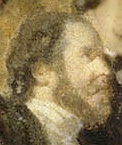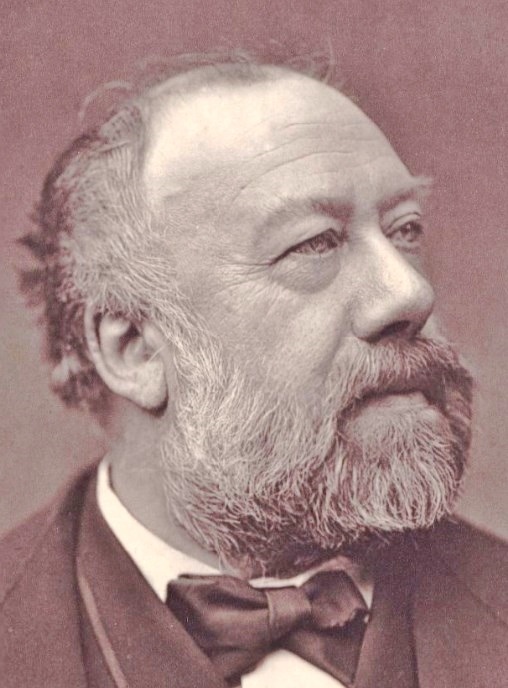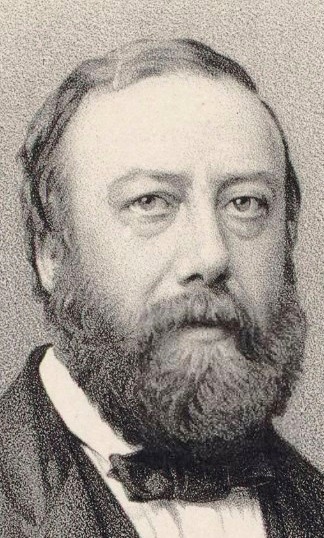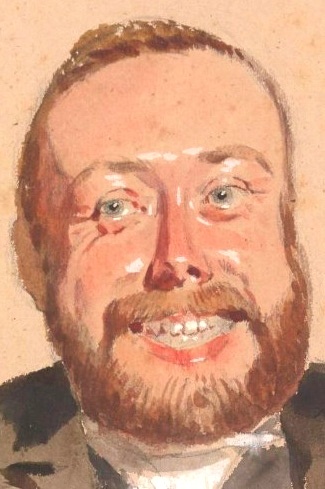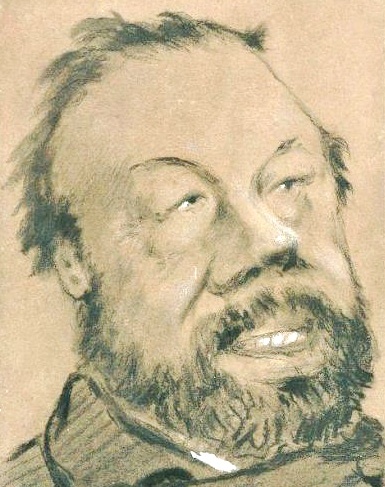Gustave Nadaud (1820-1893), poet, singer, songwriter
1st image: Soirée; 2nd: photo by Petit (1860s); 3rd: photo by Lemoine (1862); 4th: caricature by Giraud, end 1852/ early 1854, at Nieuwerkerke's soirée; 5th: caricature by Nadar, late 1850s.
Fabric sales were never Gustave Nadaud’s true calling. Instead of managing his parents' shop at Place des Victoires, he devoted himself to poetry and songwriting. The revolution of 1848 marked a turning point—not only did economic hardships hinder the fabric trade, but they also pushed Nadaud to try selling his songs, leading to instant success. What had begun as a private passion shared with friends soon blossomed into a remarkable career, with Nadaud publishing hundreds of chansons—graceful, witty, sometimes ironic—that resonated deeply with audiences. With his warm and affable nature, it didn’t take long for the Parisian elite to take notice.
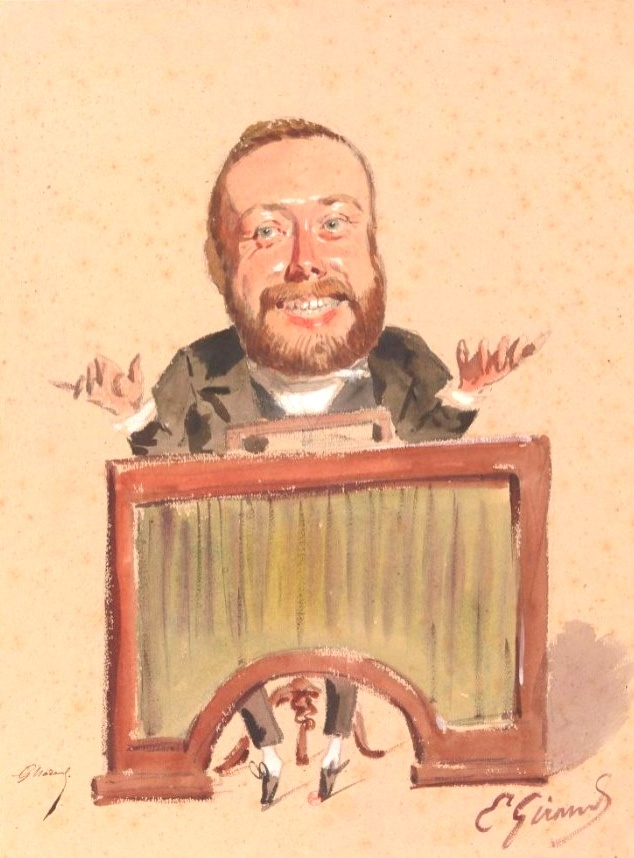
It was the playwright Émile Augier53 who introduced him to the celebrated actress Mlle Rachel Félix81. She, in turn, led him directly to Alfred de Musset73, Eugène Giraud11, Princess Mathilde, and de Nieuwerkerke’s vendredi-soirées. By February 1852, Nadaud had already given his first performance at the Louvre.
Following the main event, de Nieuwerkerke invited Nadaud to his private after-party to perform additional chansons in his Louvre apartment. Many aristocratic guests lingered to hear his melodies, described as “simple and naïve songs which will live on long after their author, and all of us who listen to him, are gone.”
Though he lacked formal vocal training, his voice harmonized perfectly with the poetry of his chansons, making his performances all the more compelling.
Nadaud’s legacy endured well beyond his time—Belgian chansonnier Georges Brassens still included some of Nadaud’s songs in his repertoire as late as the 1980s.
